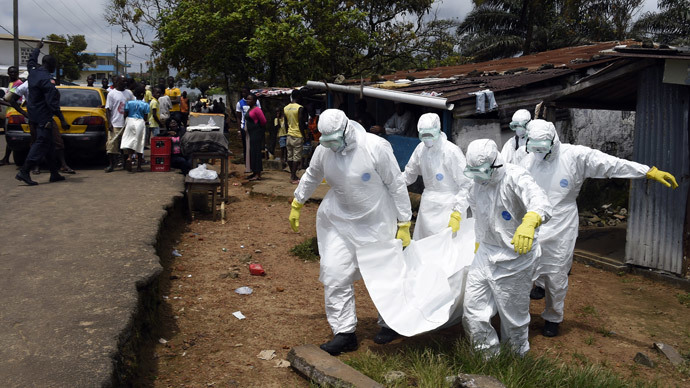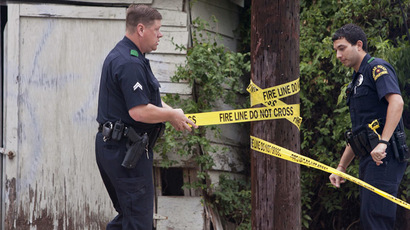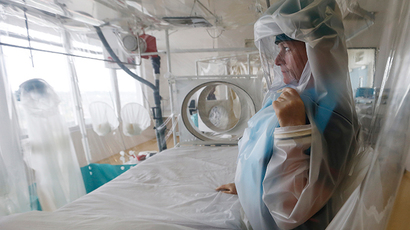IAEA to aid West Africa's fight against Ebola

The UN’s International Atomic Energy Agency has announced that it will be participating in the fight against Ebola in West Africa, providing specialized diagnostic equipment to quell the spread of the disease which has killed more than 4,400 people.
“The support is in line with a UN Security Council appeal and
responds to a request from Sierra Leone,” the IAEA announced
on its website.
IAEA Director General Yukiya Amano stated that theirs is a
“small but effective contribution” to the international
effort to overcome the epidemic.
Assistance will be provided in the forthcoming weeks, according
to the statement. It will come in the form of a delivery of
diagnostic technology known as Reverse Transcriptase Polymerase
Chain Reaction (RT-PCR).The technology is nuclear-derived and can
detect the Ebola virus within just hours.
“Transfer of nuclear-related technologies is a key part of the
Agency's work, and we have cooperated with Member States for
years to develop and strengthen their capacity to use this
nuclear-derived technology,” Amano stated.
READ MORE: Worst Ebola epidemic in history
Ebola has been spreading through West Africa’s Guinea, Liberia,
and Sierra Leone, with the number of cases topping 9,000. It has
also started to spread outside West Africa’s borders, with
transmissions recently reported in both Spain and the US.
The death toll currently stands at 4,447, though many more cases
have gone unreported.
“Early diagnosis of EVD, if combined with appropriate medical
care, increases the victims' chance of survival and helps curtail
the spread of the disease by making it possible to isolate and
treat the patients earlier,” the IAEA said.
Sierra Leone and other countries are already using the
technology, which has its limitations. However, the IAEA will be
providing further aid to help with those restrictions.
“Health authorities in Sierra Leone and other affected
countries are already applying RT-PCR, but their diagnostic
capability is limited; there is a shortage of the diagnostic kits
and other materials needed for the process and backup equipment
is needed to avoid diagnostic downtime in case of equipment
failure,” the IAEA said.
The Vienna-based body said that an RT-PCR machine and other
equipment will be dispatched to Sierra Leone, and support will
later be given to Liberia and Guinea.














